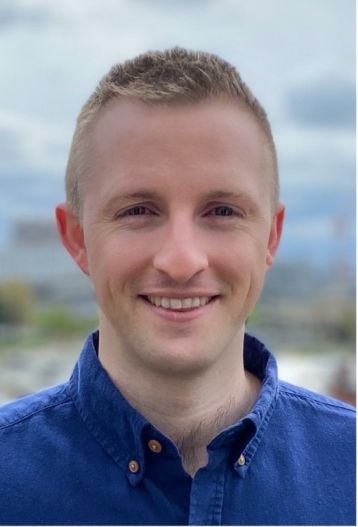Reppy Institute for Peace and Conflict Studies
Chinese Global Infrastructure

February 23, 2023
11:25 am
Infrastructure is at the heart of China’s growing, controversial presence in global development. In addition to economic considerations, observers see infrastructure projects as important cogs in China’s pursuit of international influence. However, debates on Chinese global infrastructure are remarkably devoid of historical and comparative context, and China’s infrastructure-influence nexus remains conceptually and empirically unclear. Dr. Austin Strange provides a comprehensive account of Chinese global infrastructure since 1949, showing that high-profile infrastructure has been a tenacious feature of China’s development cooperation. It then discusses how high-profile infrastructure creates both intended and incidental sources of influence by serving as a unique form of political capital as well as a distinct source of political risk for China’s government and host country governments. Contemporary Chinese global infrastructure, both traditional and digital, has important historical and comparative contexts that help illuminate how China’s global infrastructure drive has injected major risk into its pursuit of international influence.
Please join us for this virtual conversation. Register here.
About the speaker
Austin Strange is an Assistant Professor of International Relations in the Department of Politics and Public Administration at the University of Hong Kong. His research examines China’s contemporary and historical roles in the world economy and global development. He is co-author of Banking on Beijing: The Aims and Impacts of China’s Overseas Development Program (Cambridge University Press, 2022). Austin earned a Ph.D. from Harvard University, M.A. from Zhejiang University, and a B.A. from William & Mary.
Presented by the Reppy Institute for Peace and Conflict Studies. Co-sponsored by the East Asia Program and the Gender and Security Sector Lab.
Additional Information
Program
Einaudi Center for International Studies
Reppy Institute for Peace and Conflict Studies
East Asia Program
Ukraine’s Long Self-Determination

Cristina Florea in New York Review of Books
Global Public Voices fellow Cristina Florea describes how Ukrainians have reinvented their national identity five times over the past century.
Additional Information
John Carruthers

Director of Graduate Studies, Regional Science; Associate Professor, City and Regional Planning
John I. Carruthers's current scholarship is focused on evaluating environmental remediation projects in the Puget Sound region of Washington State and the value of public education and other amenities in the Seoul Metropolitan Area.
Additional Information
Faculty Seed Grants

Open now! Apply by March 1
Einaudi’s seed grants support the work of internationally engaged Cornell faculty, including research and events. Apply today!
Additional Information
Russia’s Ongoing War in Ukraine: U.S. Policy Decisions and the Provision of Lethal Aid

January 26, 2023
11:25 am
In this virtual panel discussion, Eugene Fishel and Yaropolk Kulchyckyj will provide an insider perspective into Russia’s ongoing war in Ukraine. They will bring together documentary evidence and declassified materials dealing with policy deliberation, retrospective articles authored by former policymakers, and formal memoirs by erstwhile senior officials for the first time.
Fishel will examine four key Ukraine-related policy decisions across two Republican and two Democratic administrations and ask whether, how, and under what circumstances Washington considered Ukraine’s status as a sovereign nation in its decision-making regarding relations with Moscow.
Kulchyckyj will focus on the decision-making process of the Obama and Trump administrations regarding providing lethal aid to Ukraine between 2014-2017. Although the two presidents and their administrations were at opposite extremes on domestic and foreign policy matters, the only major difference in their policy towards Ukraine was the decision to arm Ukraine with lethal aid, particularly with the Javelin anti-tank missile.
Cornell government faculty Bryn Rosenfeld will respond to their findings.
Register here
***
Panelists
Eugene M. Fishel, author of The Moscow Factor: U.S. Policy Toward Sovereign Ukraine and the Kremlin (Harvard Series in Ukrainian Studies, 2022), is a distinguished fellow at the Center for Security Policy Studies, Schar School of Policy and Government, George Mason University.
Yaropolk T. Kulchyckyj completed his doctoral research on “U.S. Foreign Policy Decision-Making: The Obama and Trump’s Administrations’ Decisions Regarding Lethal Aid to Ukraine, 2014-2017" from the School of Advanced International Studies at the Johns Hopkins University.
Bryn Rosenfeld, Assistant Professor, Department of Government, Cornell University
Moderator
Matthew Evangelista, President White Professor of History and Political Science, Department of Government, Cornell University
***
Presented by the Reppy Institute for Peace and Conflict Studies, part of the Mario Einaudi Center for International Studies. Co-sponsored by the Institute of Politics and Global Affairs.
Additional Information
Program
Einaudi Center for International Studies
Reppy Institute for Peace and Conflict Studies
Institute for European Studies
Summer Internships Are Here!

Undergrads, Apply by Jan. 15
Apply now for 2023 global summer internships! These in-person experiences let you polish your real-world skills and advance your career goals.
Additional Information
Japan and South Korea Are Still Haunted by the Past

Eun A Jo, Reppy Graduate Fellow, writes for Foreign Affairs
Confronting a Legacy of Forced—and Failed—Reconciliation
Additional Information
Waiting for the People: The Idea of Democracy in Indian Anticolonial Thought

March 23, 2023
11:25 am
It is now widely accepted that the age of decolonization was also a turning point in the history of democracy, as the vast majority of the non-European world replaced imperial rule with democratic republics. Although this fact is taken for granted, scholarly attention so far has been focused on the nationalist aspiration of anticolonial movements and their contesting visions of self-determination. In the moment of its global conquest, democracy, it may seem, was an afterthought—or, at best, a logical corollary—for anticolonial thinkers preoccupied with overcoming empire.
Focusing on colonial India and departing from the standard narratives of anticolonialism, Nazmul Sultan argues that democracy was neither a given ideal waiting to be claimed nor reducible to the concerns of territorial sovereignty. Nazmul suggests that the problem of peoplehood sat at the heart of the monumental clash between the British Empire and the Indian anticolonial movement, inspiring in the process a rethinking of the meaning of democracy for the colonial world. He will also reflect on the place of the anticolonial moment in the global history of democratic thought.
Please join us for this virtual conversation. Register here.
About the Speaker
Nazmul S. Sultan is an Assistant Professor of Political Theory in the Department of Political Science at the University of British Columbia. He is the author of Waiting for the People: The Idea of Democracy in Indian Anticolonial Thought (forthcoming with the Belknap Press of Harvard University Press). His research has also appeared in the American Political Science Review, Political Theory, and Review of Politics, among others.
Presented by the Reppy Institute for Peace and Conflict Studies. Co-sponsored by the South Asia Program, and the Gender and Security Sector Lab.
Additional Information
Program
Einaudi Center for International Studies
Reppy Institute for Peace and Conflict Studies
South Asia Program
Nuclear rhetoric escalation and risks of miscalculation in Ukraine

Agnieszka Nimark, PACS Visiting Scholar
Agnieszka Nimark, PACS Visiting Scholar, writes for CIBOD
Additional Information
Iceland President Speaks on Global Influence

Daily Sun Reporting on Nov. 10 Lecture
Addressing a packed Rhodes-Rawlings Auditorium, Guðni Th. Jóhannesson discussed Iceland’s international impact, climate change, and his thoughts on pineapple on pizza.
